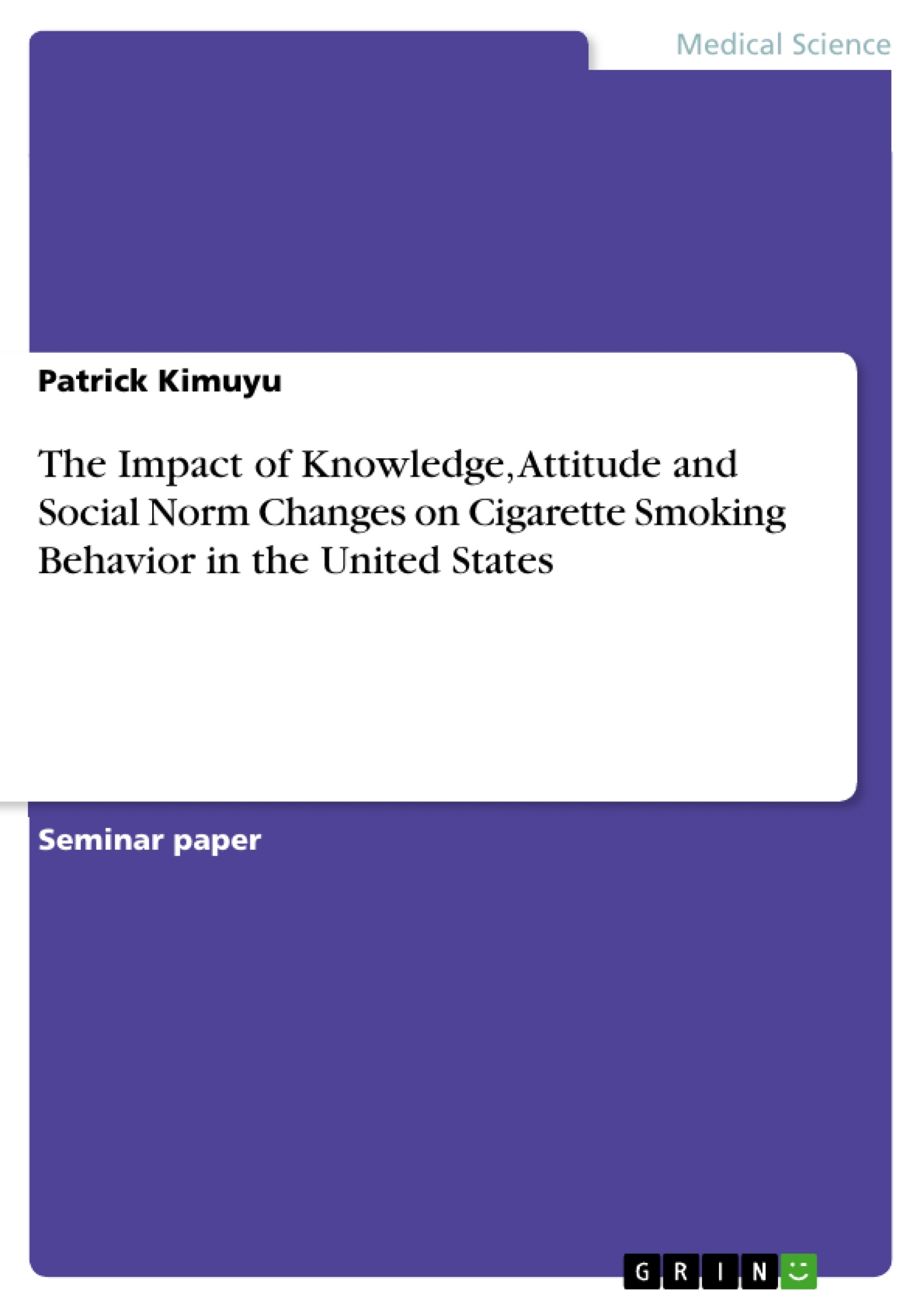In the United States cigarette smoking among youth and young adults is a prominent public health issue/concern. On this note, health compromising consequences has prompted many schools of thought and government agencies to set up programs that support smoking cessation in the United States. Cigarette smoking is a health compromising behavior because current statistics in the country show that it has resulted into approximately 443,000 premature deaths amongst youth and adults. Therefore, seminar paper discusses the impact of knowledge, attitude, and social norm changes on cigarette smoking behaviors in the United States.
Inhaltsverzeichnis (Table of Contents)
- Introduction
- Background Information
- Research Findings
Zielsetzung und Themenschwerpunkte (Objectives and Key Themes)
This seminar paper explores the impact of knowledge, attitude, and social norm changes on cigarette smoking behavior in the United States. It aims to shed light on the factors influencing smoking cessation and identify potential intervention targets.
- The influence of knowledge on smoking behavior
- The role of attitudes in shaping smoking habits
- The impact of social norm changes on cigarette smoking
- The effectiveness of tobacco control policies in promoting smoking cessation
- The prevalence of cigarette smoking among different demographic groups
Zusammenfassung der Kapitel (Chapter Summaries)
- Introduction: This chapter provides an overview of the problem of cigarette smoking among youth and young adults in the United States, highlighting its health consequences and the need for effective interventions.
- Background Information: This chapter discusses the prevalence of cigarette smoking in the United States, highlighting its impact on mortality and morbidity. It also explores factors contributing to the decline in smoking prevalence, including social norm change approaches and tobacco control programs.
- Research Findings: This chapter examines the relationship between knowledge, attitude, and social norm changes and cigarette smoking behavior. It analyzes research findings highlighting the effectiveness of social norm changes, such as tobacco control policies, in reducing smoking rates. The chapter also discusses the impact of health knowledge and attitudes on smoking behavior.
Schlüsselwörter (Keywords)
Key themes and concepts explored in this paper include cigarette smoking, knowledge, attitude, social norms, tobacco control policies, smoking cessation, health consequences, prevalence, demographic groups, and interventions.
Frequently Asked Questions
How does knowledge affect smoking behavior in the US?
The paper explores how health knowledge regarding the consequences of smoking influences the decision to start or quit cigarette use among youth and adults.
What is the role of social norms in smoking cessation?
Social norm changes, often driven by tobacco control policies, play a significant role in reducing smoking rates by making smoking less socially acceptable.
What are the health consequences of cigarette smoking mentioned?
Cigarette smoking is linked to approximately 443,000 premature deaths annually in the United States, making it a major public health concern.
Are tobacco control policies effective?
Yes, research findings analyzed in the paper suggest that tobacco control programs are effective in promoting smoking cessation and reducing prevalence.
Which demographic groups are most affected by smoking in the US?
The study highlights the prevalence of smoking among youth and young adults as a prominent issue that requires targeted interventions.
- Citation du texte
- Patrick Kimuyu (Auteur), 2018, The Impact of Knowledge, Attitude and Social Norm Changes on Cigarette Smoking Behavior in the United States, Munich, GRIN Verlag, https://www.grin.com/document/423818



